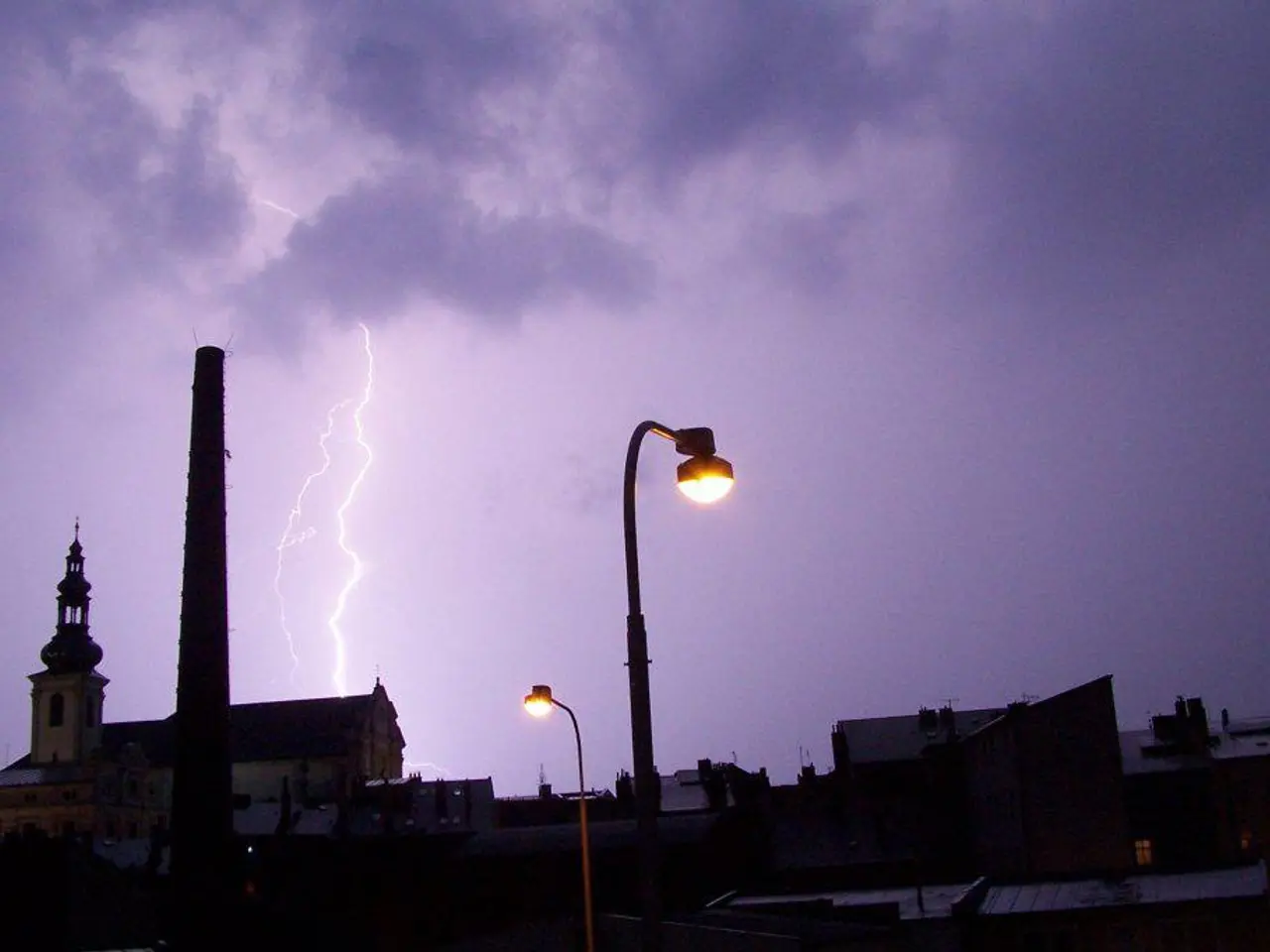Severe weather patterns poised to hit Midwestern and Southern regions this weekend, potentially causing significant damage.
Headline: Severe Weather Alert: Thunderstorms, Flash Floods, and High Temperatures Sweep Across Multiple Regions
The upcoming weekend is set to bring a series of severe weather events across various parts of the United States. Residents in numerous regions, including the Midwest, central Plains, Southeast, and Southwest, should brace themselves for potentially destructive thunderstorms, high temperatures, and flash flooding.
Southwest Heatwave
High temperatures approaching or exceeding 110 degrees are still possible in Arizona and other parts of the Southwest this weekend. On Thursday, Phoenix hit a staggering 118 degrees Fahrenheit, setting a new daily and monthly record for the city. Similar daily temperature records were also set in other cities in Arizona, such as Scottsdale, Yuma, Blythe, and Deer Valley.
Flash Flooding Threats
There are threats of dangerous flash flooding throughout the region due to the expected rainfall. The National Weather Service predicts heavy rainfall in northern Florida and southern Georgia over the weekend, with hourly rain amounts of up to 2.5 inches and multi-day totals locally reaching 9 inches. This heavy rain could cause flash flooding, especially along a corridor from northern Missouri through southern Iowa and southern Wisconsin.
Severe Thunderstorms in the Midwest and Southeast
Strong to severe thunderstorms could drop very heavy rain along a corridor from northern Missouri to southern Wisconsin. Numerous nocturnal thunderstorms are forecast across the Midwest through Monday, with the potential for damaging winds, large hail, and heavy rainfall. In the Southeast, repeated heavy rain on saturated ground will increase localized flood risks, notably in coastal southeast Georgia and nearby areas.
California Wildfires Update
In a positive development, evacuation orders have been lifted for California's Canyon Fire. The fire, which has reached 47% containment, posed a significant threat to the region but is now under better control.
Heat Advisory in Albuquerque
A heat advisory remains in effect in Albuquerque, New Mexico, through Saturday evening, with Friday's high temperature reaching 101 degrees, breaking the city's previous record of 98 degrees set in 2011.
Forecast Uncertainty
Forecast models suggest clusters of storms with severe potential, but specific timing, placement, and intensity remain somewhat uncertain on a day-to-day basis. The National Weather Service and specialized outlooks continue monitoring conditions and may update risk categories as events unfold.
Residents and authorities in these regions should prepare for severe thunderstorms, damaging winds, large hail, and significant flash flooding, with particular vigilance for nighttime thunderstorms which are expected to be especially impactful. More than 50,000 people in Nebraska have already lost power due to early storms, highlighting the potential for widespread damage. Stay tuned for updates as the situation develops.
- Given the impending severe weather events, including thunderstorms, it would be vital for environmental scientists to closely monitor the impact of these weather patterns on the climate-change scene.
- As the environmental science community pays close attention to the severe weather events unfold, residents in affected regions should also look out for changes in the weather patterns, especially on a long-term scale, to gauge the potential effects of climate change on their local environments.








